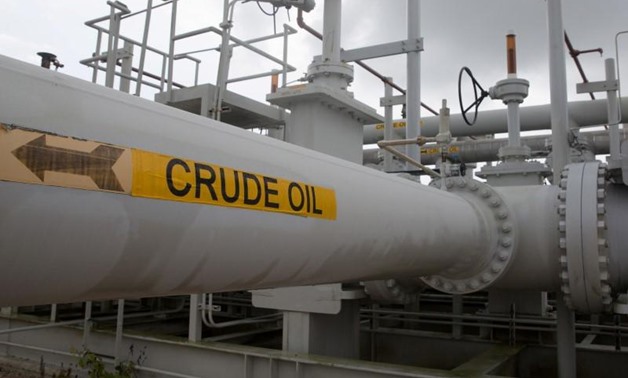
A maze of crude oil pipes and valves is pictured during a tour by the Department of Energy at the Strategic Petroleum Reserve in Freeport, Texas, U.S. June 9, 2016. REUTERS/Richard Carson
CAIRO – 14 March 2021: The Media Center of Cabinet issued an infograph highlighting Egypt's step forward to achieving self-sufficiency in petroleum products (gasoline and diesel) in 2023, after the success in achieving gas self-sufficiency in 2018.
The center stated in a statement, Sunday, that the report contained the most important indicators that confirm Egypt's trend towards achieving self-sufficiency in petroleum products, which was the increase in foreign investments in the petroleum sector by 5.4 percent, reaching about $ 7.8 billion in 2019 / 2020, compared to $ 7.4 billion in 2014/2015, in addition to an increase in local investments in the sector by 90.9percent, reaching about LE 12.6 billion in 2019/2020, compared to LE 6.6 billion in 2014/2015.
It mentioned that the value of exports of petroleum products increased by 95 percent to record $3.9 billion in 2019/2020, compared to $2 billion in 2014/2015, while imports decreased by 53.3 percent, reaching $4.3 billion in 2019/2020 compared to $9.2 billion in 2014/2015.
In addition, domestic consumption of natural gas increased by 27.7 percent, reaching 60 billion m3 in 2019/2020 compared to 47 billion m3 in 2014/2015, while domestic consumption of petroleum products decreased by 27.6 percent, reaching 27.5 million tons in 2019/2020 compared to 38 million tons in 2014/2015.
The report monitored the most prominent praises related to this regard, as Fitch praised the efforts made by the Egyptian government to attract more investments to the oil and gas sectors, stressing that in the long term, investors will find huge opportunities and resources in oil projects in the Egyptian market.
In the same context, the World Bank commented that the oil and gas sectors will remain major drivers of foreign direct investment, driven by the expansion of exploration and production agreements with international oil companies.
The report indicated that the petroleum refining sector is pushing the economy to achieve growth, pointing to the most prominent indicators of improvement in this sector during the year 2019/2020, as its growth rate reached 17.3 percent, and its contribution to economic growth reached 25.8 percent, compared to -4 percentin 2014/2015.
The report noted that the percentage of public investments implemented in the petroleum refining sector amounted to 333.3 percent, reaching LE 2.6 billion in 2019/2020 compared to LE 0.6 billion in 2014/2015.
In a related context, the report dealt with presenting the most prominent indicators of improved production, as Egypt's production of petroleum products increased by about 16.5 percent, to reach 29.7 million tons in 2019/2020, compared to 25.5 million tons in 2014/2015.
This comes at a time when the rate of increase in Egypt's production of gasoline amounted to about 13.6percent, as production recorded 5 million tons in 2019/2020 compared to 4.4 million tons in 2014/2015, while Egypt's production of diesel increased by 20.8 percent, where it scored 9.3 million tons in 2019/2020,compared to 7.7 million tons in 2014/2015.
Regarding the refining sector, the report indicated that the International Monetary Fund confirmed that the oil refining sector is still one of the strong and established sectors in Egypt despite the negative economic repercussions of the Corona pandemic.
For its part, Fitch emphasized that Egypt has the largest crude oil refining capacity in the continent, and that the new projects will provide additional capabilities that help enhance Egypt's energy security.
The report showed an increase in the production capacity of petroleum products thanks to the expansion of refining projects, pointing to an increase in the production capacity of the refineries of petroleum products by 23.4 percent, reaching 32.7 million tons in 2019/2020 compared to 26.5 million tons in 2014/2015.
Comments
Leave a Comment